The History of Business Law at Yale

William O. Douglas, Sterling Professor of Law, 1928-36
William Orville Douglas (1898-1980) had a short but remarkably productive career as an academic. Lured away from the University of Chicago in 1928, Douglas was at Yale for only five years before embarking on his long career in the public sector. In 1934 he started commuting between New Haven and Washington, D.C. to direct a study on creditor protective committees in corporate insolvency reorganizations for the U.S. Securities and Exchange Commission. Douglas took a formal leave of absence in 1936 when he became a commissioner of the agency, and resigned in 1937 when he was appointed chairman of the Commission. In 1939, he was appointed to the U.S. Supreme Court, where he served until he retired in 1975.
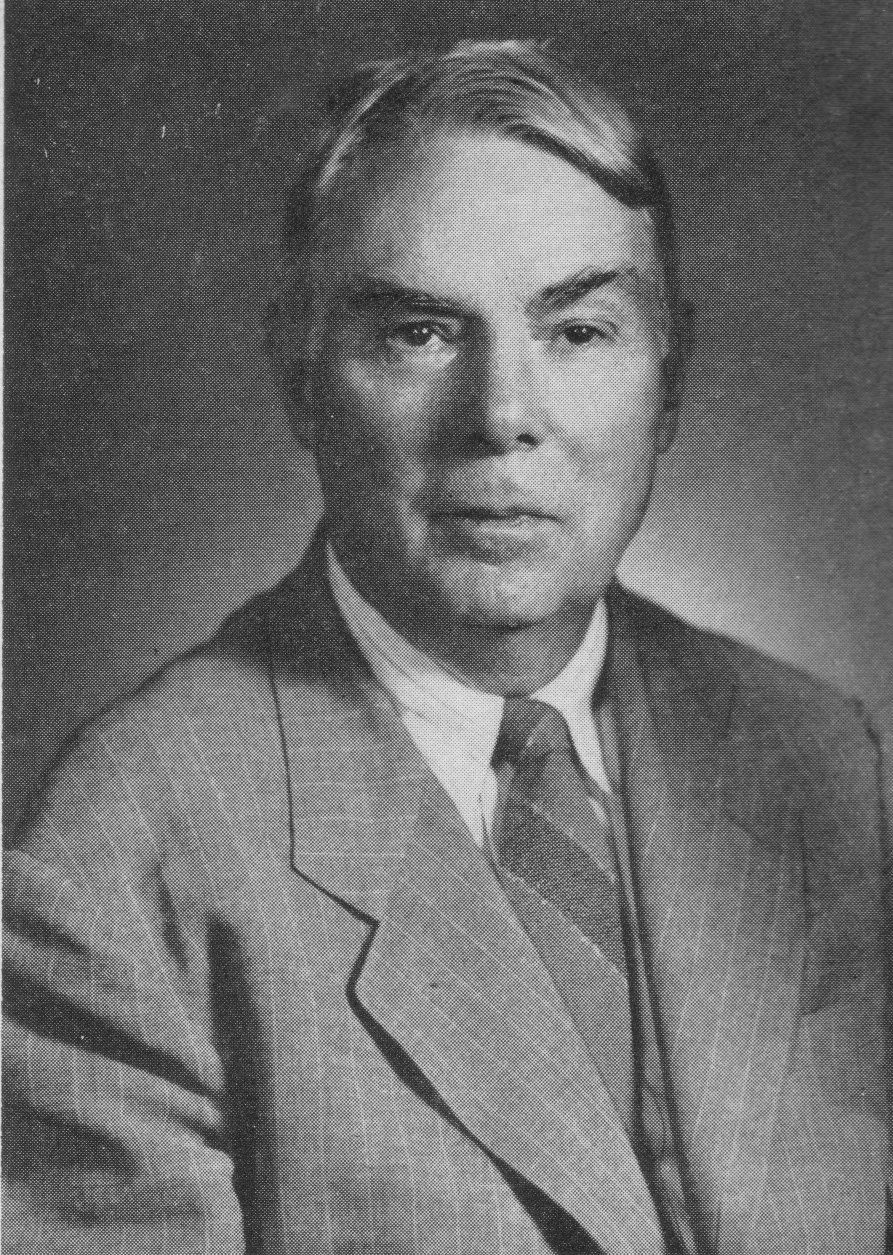
Walton H. Hamilton, Southmayd Professor of Law, 1928-48
Walton Hale Hamilton (1881-1958) was one of the intellectual leaders of the Legal Realist movement at Yale. An economist but not a lawyer, Hamilton applied the insights of institutional economics to legal contexts, producing many classic critiques of legal formalism. In works such as “The Ancient Maxim Caveat Emptor,” 40 Yale L. J. 1133 (1931), “Affectation with a Public Interest,” 39 Yale L. J. 1089 (1930), and “The Path of Due Process of Law,” 48 Ethics 269 (1938), he showed how legal concepts that had evolved in specific historical and social contexts could lead to surprising and undesirable outcomes when removed from context and generalized into universal legal principles. Hamilton also undertook industry studies to show how wages and prices were not set by market forces as understood by neoclassical economists but rather depended on social and historical contexts, that resulted in noncompetitive wages and prices.

W. Underhill Moore, Sterling Professor of Law, 1929-47
William Underhill Moore (1879-1949) came to Yale from Columbia in 1929. An expert in commercial bank credit and business organizations, Moore was one of the intellectual leaders of the Legal Realist movement at Yale and a pioneer in the use of social scientific methods in legal research.
Like his Yale contemporary Karl Llewellyn, Moore maintained that judges often applied non-legal norms—especially norms of commercial behavior—in deciding cases. Of the Realists, Moore was the most dedicated to the ideal of scientific objectivity. n a famous 1929 study, “An Institutional Approach to the Law of Commercial Banking,” 38 Yale L. J. 703 (1929), Moore (with Theodore S. Hope, Jr.) attempted to explain and predict banking law decisions that did not appear to derive from existing legal rules by determining the extent to which the facts of the case deviated from normal banking practice. In addition, in a series of articles with Gilbert Sussman, Moore undertook an empirical survey of actual banking practices in discounting notes.
Later scholars have criticized Moore’s empirical studies for their primitive methodology, but his core notion about the importance of empiricism in legal research has largely become conventional wisdom.

Harry A. Shulman, Sterling Professor of Law, 1929-54
Harry Shulman (1903-55) came to Yale in 1929. He was appointed the dean of the Law School in 1954, but died only a year later. Although he contributed to torts and administrative law scholarship, his best-known work involved labor contracts.
Shulman has been described as “one of the most influential people in the history of American Labor arbitration.” He served on the National War Labor Board during World War II, and later served for many years as umpire of the labor agreement between Ford Motor Company and the United Automobile Workers. His 1949 casebook, Cases on Labor Relations, on which he collaborated with an economist, was the first book on arbitration of collective bargaining disputes and, in the functional approach of the Legal Realist tradition, was organized by the types of disputes that might arise in the life of a labor contract.
Dean Shulman’s 1955 Oliver Wendell Holmes Lecture, “Reason, Contract, and Law in Labor Relations,” 68 Harv. L. Rev. 999, remains one of the most frequently-cited law review articles. His vision of the limited and restrained arbitrator has remained influential to this day.
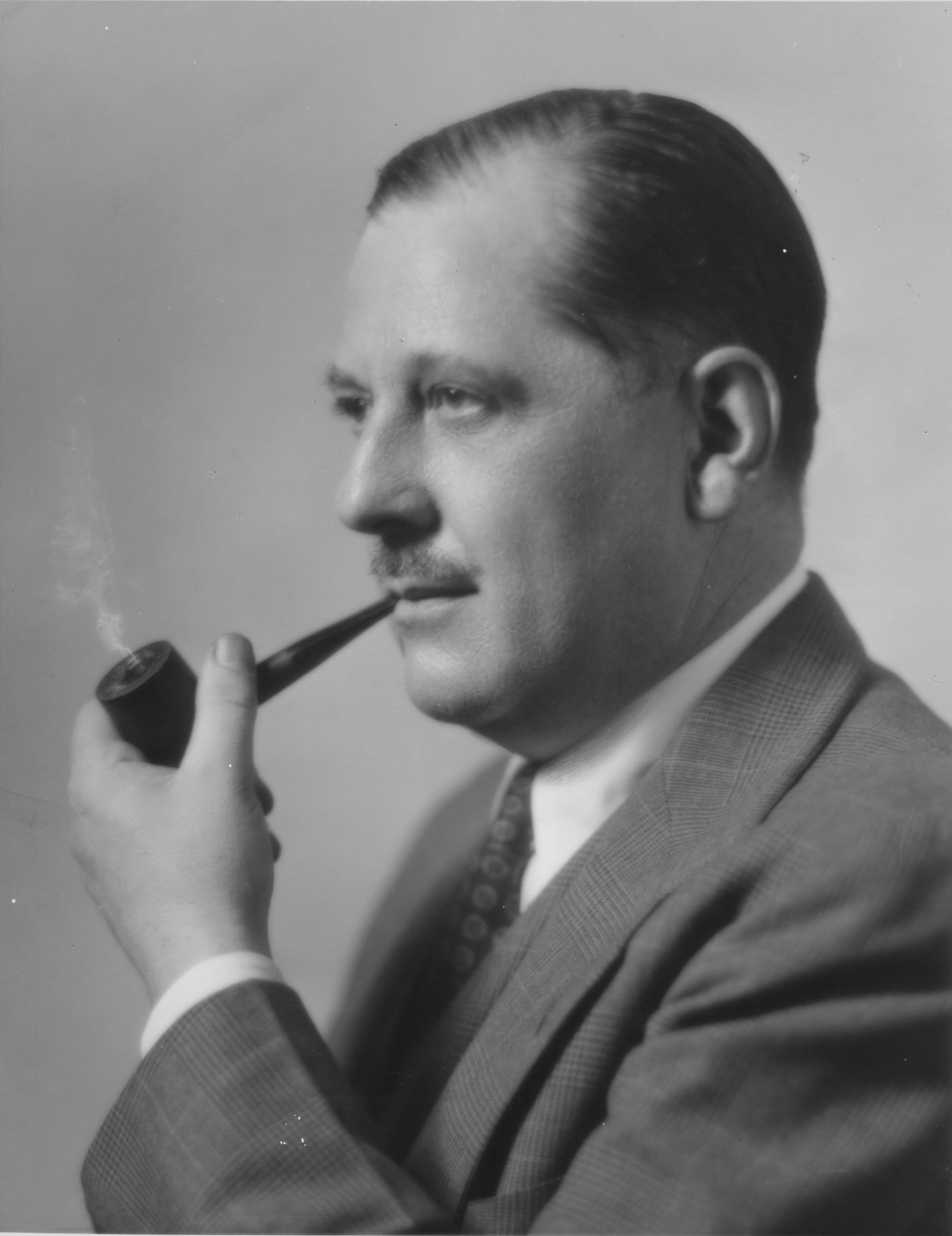
Thurman W. Arnold, Lafayette S. Foster Professor of Law, 1930-31, 1931-38
Thurman Wesley Arnold (1891-1969) was one of the most prominent Legal Realists at Yale in the 1930s. Arnold was recruited to the Law School faculty in 1930, and remained at the school until 1938, when he was appointed Assistant Attorney General in charge of the Antitrust Division of the Department of Justice.
During his years on the faculty, Arnold authored numerous law review articles and became one of the most prominent Legal Realists through publication of two best-selling books, written for a lay audience, The Symbols of Government (1935) and The Folklore of Capitalism (1937).
As a pioneering leader of the Antitrust Division, however, Arnold was perhaps the most aggressive trust-buster in the division’s history. He restructured the division to emphasize an anti-monopoly strategy with “consumer welfare” (competitive prices) as the goal, rather than a reduction in the concentration of power per se.
Arnold served in the Antitrust Division until he was appointed to the U.S. Court of Appeals for the D.C. Circuit in 1943. In 1945, he left the bench and founded the Washington, D.C. law firm that still bears his name, Arnold & Porter.

Friedrich Kessler, Sterling Professor of Law, 1935-39, 1947-70
Friedrich Kessler (1901-1998) fled Nazi Germany in 1934 and came to Yale, where he remained until 1970 except for a stint at the University of Chicago Law School from 1938-47. Kessler was a self-described Legal Realist, and one of the world’s leading contracts scholars.
Kessler described the Legal Realist’s task as “constantly testing out the desirability, efficiency and fairness of inherited legal rules and institutions in terms of the present needs of society.” “Natural Law, Justice and Democracy—Some Reflections on Three Types of Thinking About Law and Justice,” 19 Tul. L. Rev. 32, 52 (1944). Much of Kessler’s most important work consisted of “testing out” the doctrine of “freedom of contract.”
In his celebrated article, “Contracts of Adhesion—Some Thoughts About Freedom of Contract,” 43 Colum. L. Rev. 629 (1943), Kessler maintained that Eighteenth century concepts of freedom of contract were inadequate to the realities of modern industrial economies. Through standardized contracts, he contended, parties with stronger bargaining power – in particular, large corporations – could impose their will on individuals, and courts were reluctant to give up the language of freedom of contract, even when they decided in favor of the weaker party, creating doctrinal confusion, instead of recognizing the modern contracting context and modifying the concept of freedom of contract to fit the contracting circumstances.
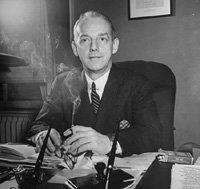
Randolph E. Paul, Visiting Sterling Lecturer, 1937-43
Randolph Paul (1890-1956) was one of the architects of the federal income tax. An advocate of the expansion of federal taxes during World War II, he served first as an informal advisor to the Treasury Department on tax issues in the late 1930s and early 1940s. He assumed a full time position after the attack on Pearl Harbor, becoming General Counsel to the Treasury in August 1942. During the years when he was lecturing at the Law School, in addition to engaging in private tax practice, serving as a director of the Federal Reserve Bank in New York and providing advice to the Treasury Department, he published a series of influential works on federal taxation, including Studies in Federal Taxation (1937, 1938, 1940), and Federal Estate and Gift Taxation (1942). As Treasury General Counsel, he advocated a broad income tax, both as a revenue producer to finance the war effort, and as a tool for regulating the economy. He contended that an income tax expanded to include the middle class was more equitable, as well as more reliable as a revenue stream to meet war needs, than a national sales tax, an alternative being promoted by members of Congress, among others, at the time.
In 1944, Paul left the Treasury Department to found the New York law firm Paul, Weiss, Rifkind, Wharton & Garrison.

James William Moore, Sterling Professor of Law, 1938-74
James William Moore (1905-1994) received a doctorate from the Law School (1935) and joined the faculty in 1938 after two years at the University of Chicago Law School. Moore was the leading bankruptcy law scholar of his generation. He edited the authoritative treatise in the field for decades, the multi-volume Collier on Bankruptcy (orig. pub.1898), beginning in 1938 when he assumed the position of the work’s Editor-in-chief at the time of the enactment of the Chandler Act, which was a major rehauling of the bankruptcy laws.
Moore’s other publications in the field include Moore’s Bankruptcy Manual (1939) and the casebook, Debtors’ and Creditors’ Rights: Cases and Materials, written with Vern Countryman, which was first published in 1947 and went through four editions by 1975.
Moore authored the leading treatise not only on bankruptcy law, but also on civil procedure, an unusual accomplishment. Along with Dean Charles E. Clark, Moore was one of the lead drafters of the new “trans-substantive” Federal Rules of Civil Procedure in the 1930s. Moore wrote extensive commentaries on the new rules, culminating in the definitive guide to the rules, the 34-volume Moore’s Federal Practice, which he personally updated well into the 1980s.

Eugene V. Rostow, Sterling Professor of Law, 1938-84
Eugene V. Rostow (1913-2002) graduated from Yale College in 1933 and the Law School in 1937, and returned as a professor in 1938. He was the dean of the Law School from 1955-65.
Dean Rostow is perhaps best remembered for his foreign affairs work. At the beginning of his career, however, Dean Rostow specialized in the business law area, teaching many business law courses at Yale, including a seminar for graduate students in economics as well as law students, on the public regulation of industry. That seminar introduced macroeconomics - which Rostow had studied at Cambridge University before entering law school - into antitrust law, and focused on the use of public policy to regulate businesses so as to smooth out the business cycle. Rostow also published a number of influential books on business law-related topics, including A National Policy for the Oil Industry (1948) and Planning for Freedom (1959). In these books he expounded a vision of market competition channeled through efficiency-increasing public regulation.
Dean Rostow’s greatest contribution to business law scholarship at Yale, was, however, in the doubling of the faculty size during his deanship. There was also considerable curricular innovation during his deanship, including the creation of the first year small groups. Rostow was one of the great deans of the Law School and had a lasting influence on it.
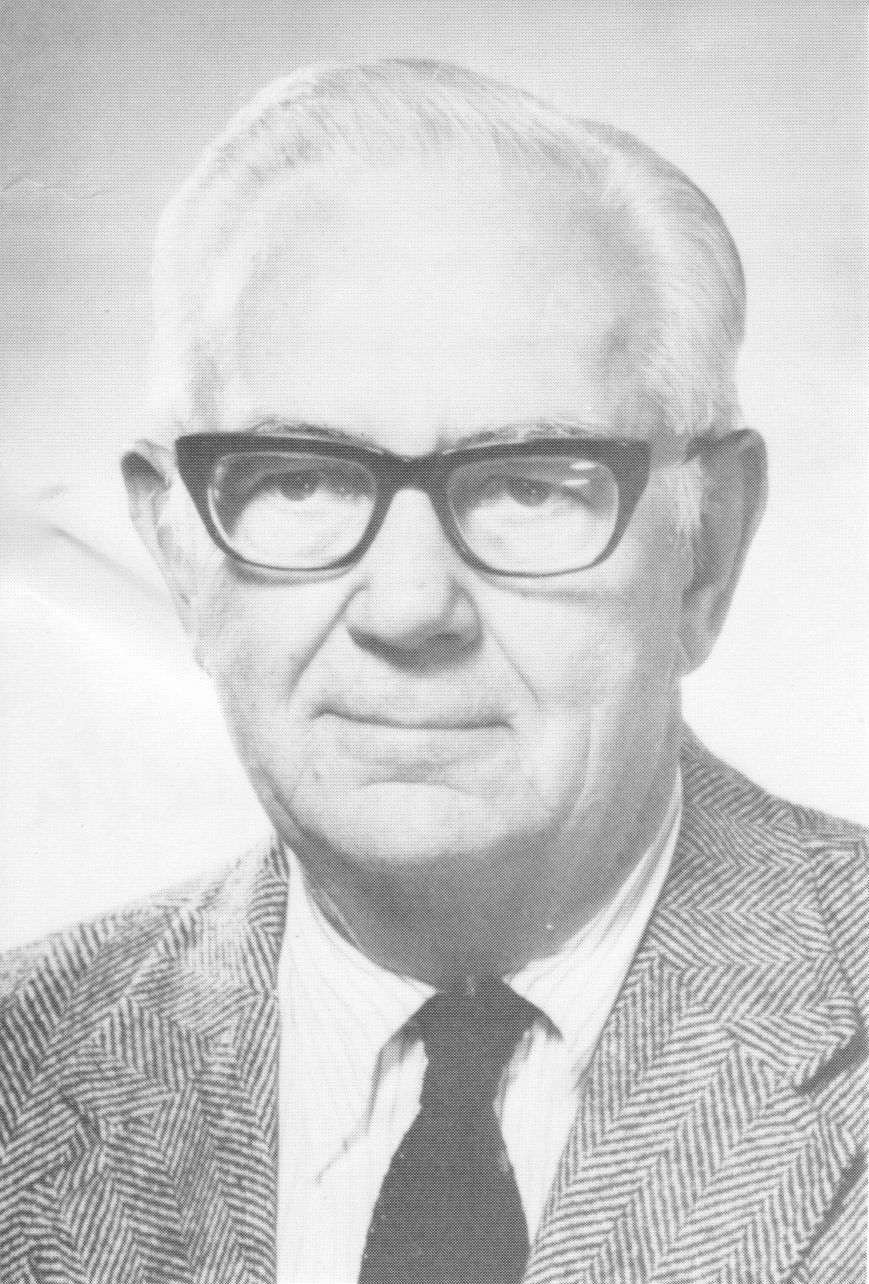
Addison Mueller, Professor of Law, 1945-56
Addison Mueller (1908-1981) graduated first in his class at the Law School in 1943, and returned as a member of the faculty in 1945, teaching in the contract law area.
In 1951, Mueller published Contracts in Context (1951), an innovative casebook that presented the basic contracts course through a series of fact-intensive scenarios and included materials on business practices and documents. As the title suggests, the book reflected Mueller’s belief that contract law needed to be understood holistically, and could not be fully represented by a set of simple, abstract principles. Like the earlier Legal Realists, he organized the book functionally, around the problems sequentially encountered in a business transaction (building an apartment house). The book became a major influence on how contract law was taught.

Boris I. Bittker, Sterling Professor of Law, 1946-83
Boris Bittker (1916-2005), YLS ’41, was a professor at the Law School for nearly six decades. He was the dominant tax scholar of his era, and a pioneer in turning the study of federal tax law into a serious academic discipline. Bittker’s early articles can be characterized as treating “technical” issues in the tax code, but the scope of his scholarship soon expanded to the major questions of tax policy, and his articles continue to shape academic discussion of tax law.
Bittker published several innovative casebooks, as well as treatises, updated versions of which are still in use today. Bittker’s Estate and Gift Taxation (1951), for instance, was one of the first casebooks on the subject and engaged the critical tax policy issue of wealth redistribution. In addition, his Federal Income Taxation (1954) was the first “completely new” text published after the comprehensive revision of the Internal Revenue Code in 1954, and like his earlier casebook, explicitly considered policy issues in contrast to most casebooks of the time.
Bittker’s prolific scholarly output covered not only all of income and estate taxation, including the taxation of business enterprises, but also a variety of nontax subjects, including civil rights and constitutional law. In 1972 (reissued in 2003), he published The Case for Black Reparations, an important work in which he sought to establish the feasibility of providing reparations to African-Americans for the horrors of slavery.

Grant Gilmore, Sterling Professor of Law, 1946-65, 1973-78
Grant Gilmore (1910-1982) received his A.B. from Yale College in 1931, a Ph.D. in French Literature from Yale in 1936, and his LL.B. from the Law School in 1942. One of the preeminent contract scholars of his generation, Gilmore, who worked out of the Legal Realist tradition, was to remain at Yale—except for a seven-year sojourn at Chicago—until his retirement.
Gilmore’s best-known work was The Death of Contract (1974), in which he presented a concise history of Anglo-American contract law, and contended that contract law was being swallowed up by tort as a “reliance” theory of contract gradually supplanted the “bargain” theory.
A central theme in his work throughout his career, equally present in an important early paper on good faith purchases, as in his book published over twenty years later, The Ages of American Law (1977), was the illusion of certainty, or as he put it, “[t]he only legal certainty is the certainty of legal change.” “The Commercial Doctrine of Good Faith Purchase,” 63 Yale L. J. 1057, 1121 (1954). Indeed, paralleling that theme, his own views changed dramatically over time, shifting away from his earlier advocacy of codification, in “Formalism and the Law of Negotiable Instruments,” 13 Creighton L. Rev. 441, 461 (1979), and calling his earlier work on the law of good faith purchases largely “mistaken,” in “The Good Faith Purchase Idea and the Uniform Commercial Code: Confessions of a Repentant Draftsman,” 15 Ga. L. Rev. 605, 605 (1981).
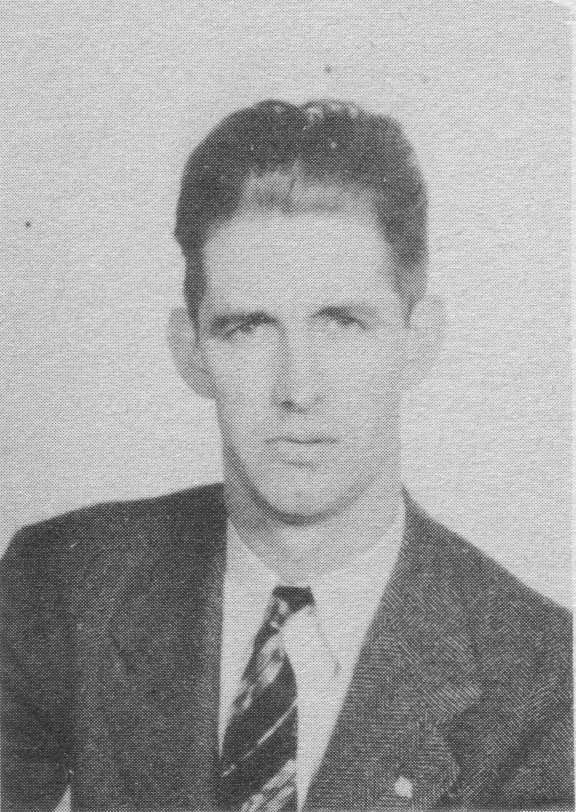
Vern Countryman, Associate Professor of Law, 1948-55
Vern Countryman (1917-99) was a graduate student at the Law School in 1947-48 before joining the faculty as an assistant professor. Countryman was a prominent bankruptcy scholar, following in the footsteps of Wesley Sturges and his mentor, William O. Douglas, for whom he clerked. His casebook with J. William Moore, Debtors’ and Creditors’ Rights: Cases and Materials, which was first published in 1947 and went through four editions by 1975, took a novel approach to the subject, by providing the evolution of both the non-bankruptcy and bankruptcy systems of creditors’ remedies, thereby facilitating a comparative evaluation of their merits.
While at Yale, Countryman wrote a number of articles on creditor and debtor rights and one book, Un-American Activities in the State of Washington: The Work of the Canwell Committee (1951), which was an attack on that state’s version of the House Un-American Affairs committee; the state committee purged the University of Washington faculty of communist sympathizers. Countryman was denied tenure by the University, despite the Law School faculty’s positive recommendation, because of that book, which Yale’s President, A. Whitney Griswold, was said to have considered of insufficient academic quality to merit tenure. Many faculty members, however, ascribed the decision to Countryman’s politics and the tenure denial was therefore a cause célèbre. He was offered an extension of his contract to improve his scholarly output for reconsideration, but he resigned instead. After a stint in private practice followed by the deanship at the University of New Mexico Law School, Countryman joined the Harvard Law School faculty in 1964.